Risikoverlagerung in Finanzmärkten und nachhaltige Finanzierung
Erleichtern Finanzinstitute nachhaltige Finanzierungen? Diese Forschungsgruppe untersucht die Anreize der Kreditgeber zur Risikoverlagerung, ihre Entscheidungen bei der Unterstützung nachhaltiger Unternehmen und wie sich nachhaltige Finanz- und Rechtsinnovationen auf Unternehmen und Haushalte auswirken.
Forschungscluster
Finanzresilienz und RegulierungIhr Kontakt

- Abteilung Finanzmärkte
Referierte Publikationen

To Securitize or To Price Credit Risk?
in: Journal of Financial and Quantitative Analysis, Nr. 1, 2023
Abstract
<p>Do lenders securitize or price loans in response to credit risk? Exploiting exogenous variation in regional credit risk due to foreclosure law differences along US state borders, we find that lenders securitize mortgages that are eligible for sale to the Government Sponsored Enterprises (GSEs) rather than price regional credit risk. For non-GSE-eligible mortgages with no GSE buyback provision, lenders increase interest rates as they are unable to shift credit risk to loan purchasers. The results inform the debate surrounding the GSEs' buyback provisions, the constant interest rate policy, and show that underpricing regional credit risk increases the GSEs' debt holdings. </p>

The Effect of Bank Failures on Small Business Loans and Income Inequality
in: Journal of Banking and Finance, January 2023
Abstract
Using variation in the timing and location of branches of failed banks we analyze its effect on income inequality. Employing a difference-in-differences specification we find that bank failures increased the GINI by 0.3 units (or 0.7%). We show that the rise in inequality is due to a decrease in the incomes of the poor that outpaces declines of the rest. We further show that individuals with lower levels of education exhibit a relatively greater decline in real wages and weekly hours worked. Exploring channels of transmission, we find income inequality is explained by a general decline in small business loans. This in turn reduces net new small business formation and their job creation capacity, a sector that hires a substantial share of low-income earners.
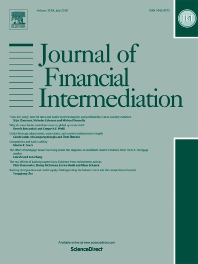
Explicit Deposit Insurance Design: International Effects on Bank Lending during the Global Financial Crisis
in: Journal of Financial Intermediation, July 2022
Abstract
Studies find that during the 2007–2009 global financial crisis, loan spreads rose and corporate lending tightened, especially for foreign borrowers (a flight-home effect). We find that banks in countries with explicit deposit insurance (DI) made smaller reductions in total lending and foreign lending, experienced smaller increases in loan spreads, and had quicker post-crisis recoveries. These effects are more pronounced for banks heavily relying on deposit funding. Evidence also reveals that more generous or credible DI design is associated with a stronger stabilization effect on bank lending during the crisis, confirmed by the difference-in-differences analysis based on expansion of DI coverage during the crisis. The stabilization effect is robust to the use of country-specific crisis measures and control of temporary government guarantees.
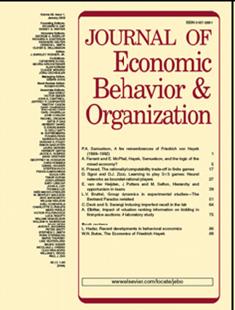
The Impact of Overconfident Customers on Supplier Firm Risks
in: Journal of Economic Behavior and Organization, May 2022
Abstract
Research has shown that firms with overconfident chief executive officers (CEOs) tend to overinvest and are exposed to high risks due to unrealistically optimistic estimates of their firms’ future performance. This study finds evidence that overconfident CEOs also affect suppliers’ risk taking. Specifically, serving overconfident customers can lead to high supplier risks, measured by stock volatility, idiosyncratic risk, and market risk. The effects are pronounced when customers aggressively invest in research and development (R&D). Our results are robust after addressing self-selection bias and using different CEO overconfidence measures. We also document some real effects of customer CEO overconfidence on suppliers.

The Effect of Foreign Institutional Ownership on Corporate Tax Avoidance: International Evidence
in: Journal of International Accounting, Auditing and Taxation, March 2022
Abstract
We find that foreign institutional investors (FIIs) reduce their investee firms’ tax avoidance. We provide evidence that the effect is driven by the institutional distance between FIIs’ home countries/regions and host countries/regions. Specifically, we find that the effect is driven by the influence of FIIs from countries/regions with high-quality institutions (i.e., common law, high government effectiveness, and high regulatory quality) on investee firms located in countries/regions with low-quality institutions. Furthermore, we show that the effect is concentrated on FIIs with little experience in the investee countries/regions or FIIs with stronger monitoring incentives. Finally, we find that FIIs are more likely to vote against management if the firm has a higher level of tax avoidance.
Arbeitspapiere
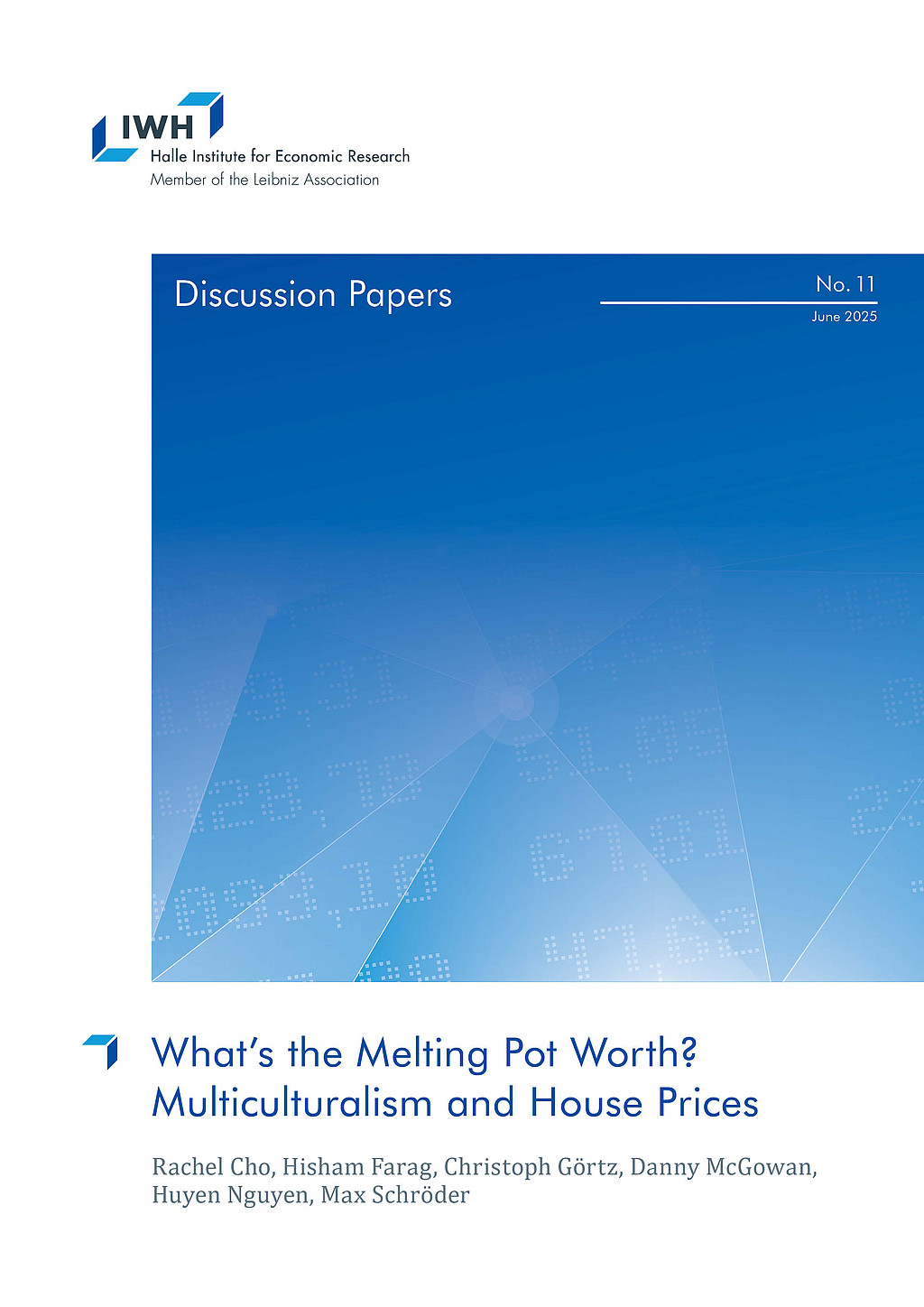
What’s the Melting Pot Worth? Multiculturalism and House Prices
in: IWH Discussion Papers, Nr. 11, 2025
Abstract
<p>Is there a multicultural neighborhood price premium? We exploit plausibly exogenous variation in British colonization patterns in Northern Ireland during the early 1600s which created neighborhoods of varying religious composition that persists until today. These religious groups are culturally distinct, but are observationally equivalent ethnically and socioeconomically. A standard deviation increase neighborhood-level multiculturalism raises house prices by 9.6%. Multiculturalism raises property prices by increasing asset liquidity and housing demand as a wider spectrum of society demand houses in these areas. The findings and mechanism contrast sharply with prior evidence showing negative relationships due to homophily, social networks, and identification challenges.</p>
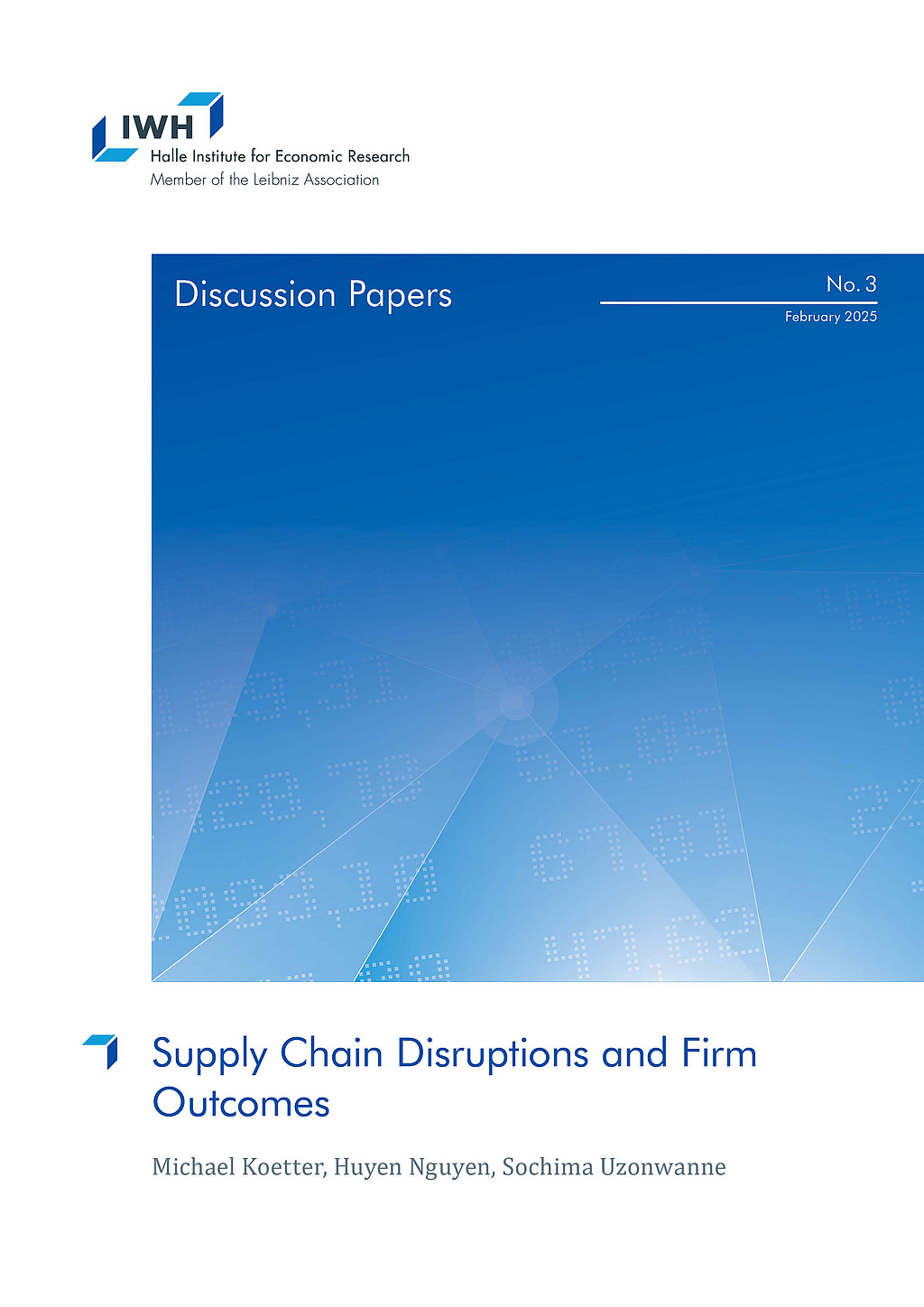
Supply Chain Disruptions and Firm Outcomes
in: IWH Discussion Papers, Nr. 3, 2025
Abstract
<p>This paper examines how firms’ exposure to supply chain disruptions (SCD) affects firm outcomes in the European Union (EU). Exploiting heterogeneous responses to workplace closures imposed by sourcing countries during the pandemic as a shock to SCD, we provide empirical evidence that firms in industries relying more heavily on foreign inputs experience a significant decline in sales compared to other firms. We document that external finance, particularly bank financing, plays a critical role in mitigating the effects of SCD. Furthermore, we highlight the unique importance of bank loans for small and solvent firms. Our findings also indicate that highly diversified firms and those sourcing inputs from less distant partners are less vulnerable to SCD.</p>
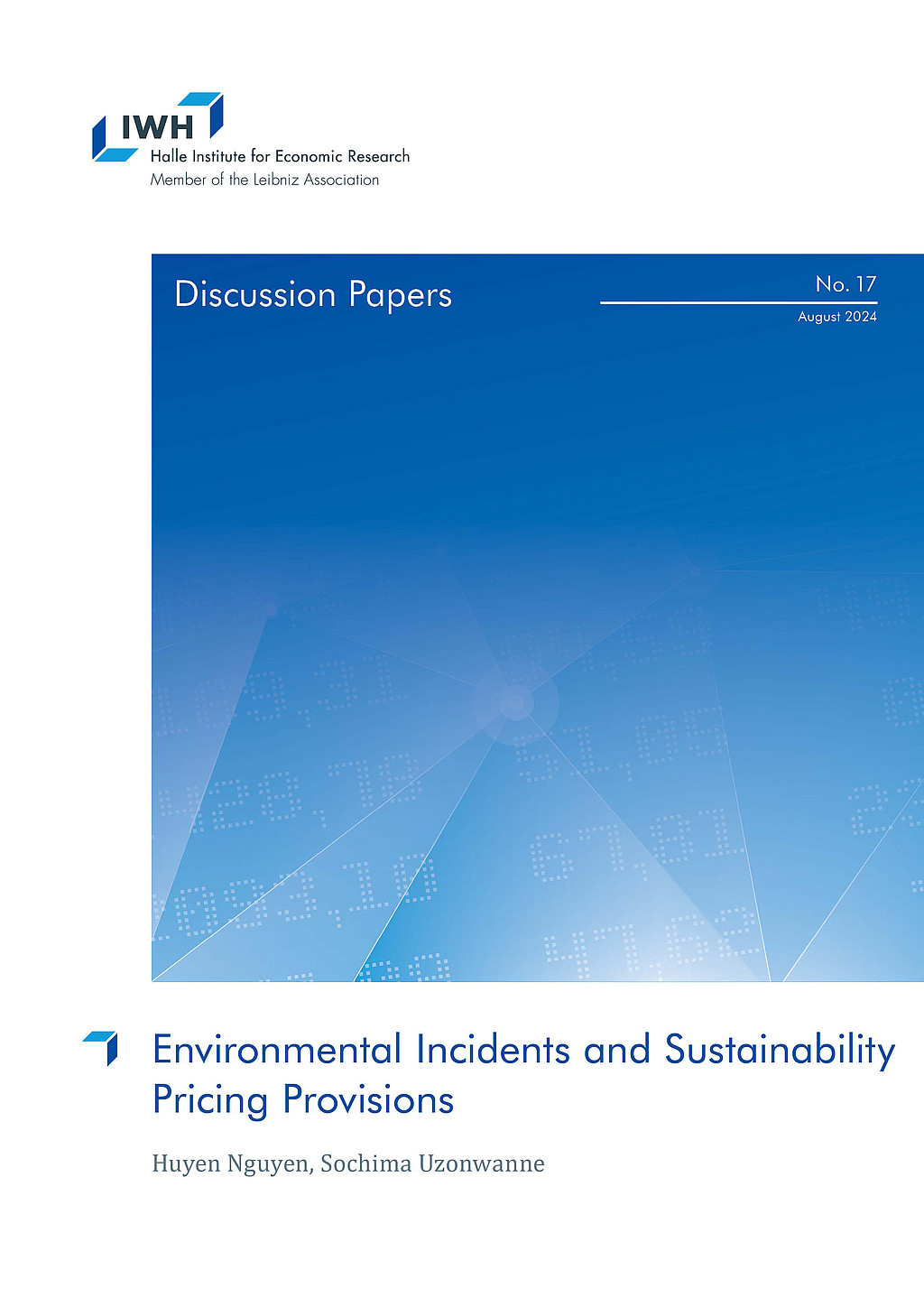
Environmental Incidents and Sustainability Pricing
in: IWH Discussion Papers, Nr. 17, 2024
Abstract
<p>We investigate whether lenders employ sustainability pricing provisions to manage borrowers’ environmental risk. Using unexpected negative environmental incidents of borrowers as exogenous shocks that reveal information on environmental risk, we find that lenders manage borrowers’ environmental risk by conventional tools such as imposing higher interest rates, utilizing financial and net worth covenants, showing reluctance to refinance, and demanding increased collateral. In contrast, the inclusion of sustainability pricing provisions in loan agreements for high environmental risk borrowers is reduced by 11 percentage points. Our study suggests that sustainability pricing provisions may not primarily serve as risk management tools but rather as instruments to attract demand from institutional investors and facilitate secondary market transactions.</p>
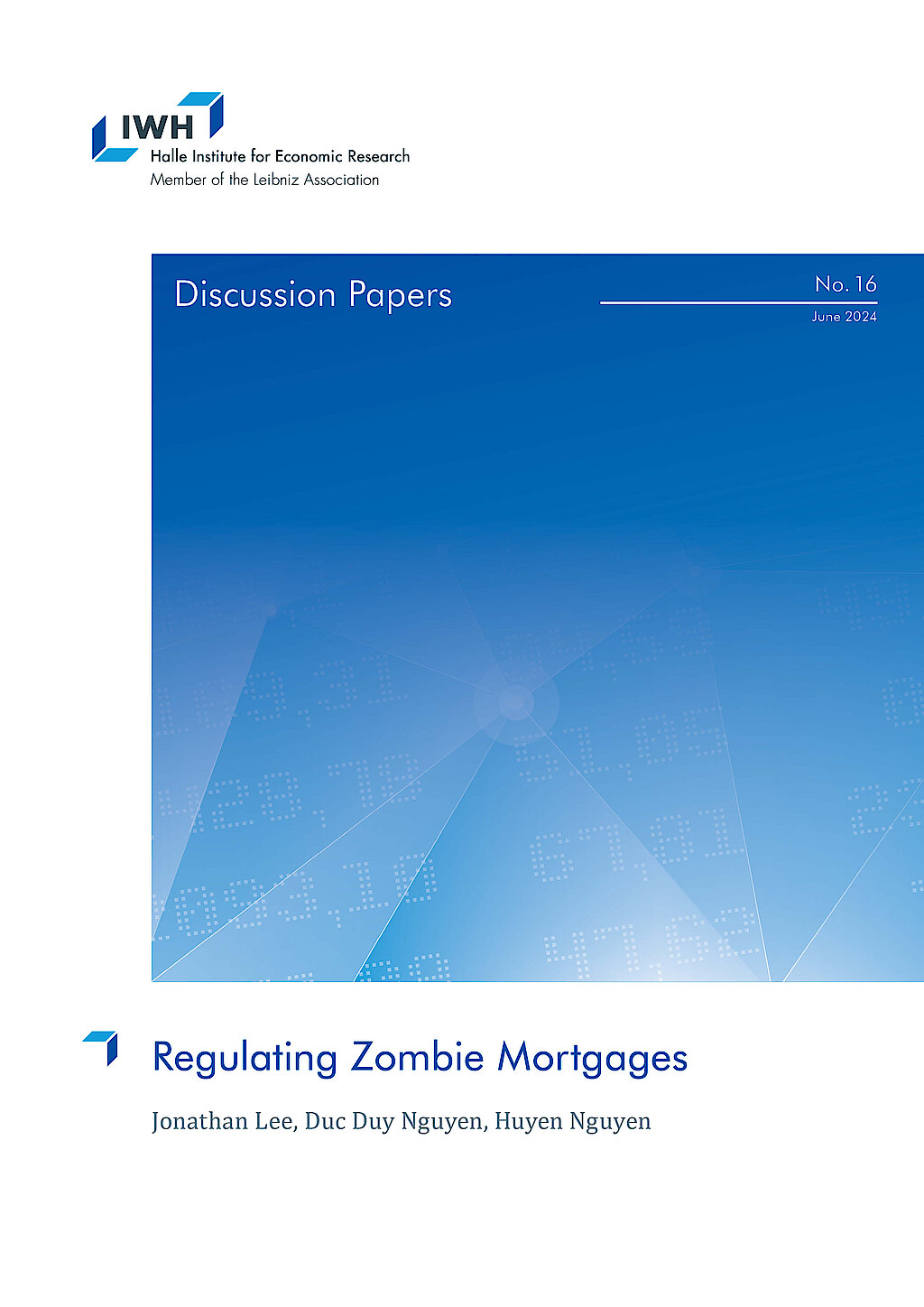
Regulating Zombie Mortgages
in: IWH Discussion Papers, Nr. 16, 2024
Abstract
Using the adoption of Zombie Property Law (ZL) across several US states, we show that increased lender accountability in the foreclosure process affects mortgage lending decisions and standards. Difference-in-differences estimations using a state border design show that ZL incentivizes lenders to screen mortgage applications more carefully: they deny more applications and impose higher interest rates on originated loans, especially risky loans. In turn, these loans exhibit higher ex-post performance. ZL also affects lender behavior after borrowers become distressed, causing them to strategically keep delinquent mortgages alive. Our findings inform the debate on policy responses to foreclosure crises.
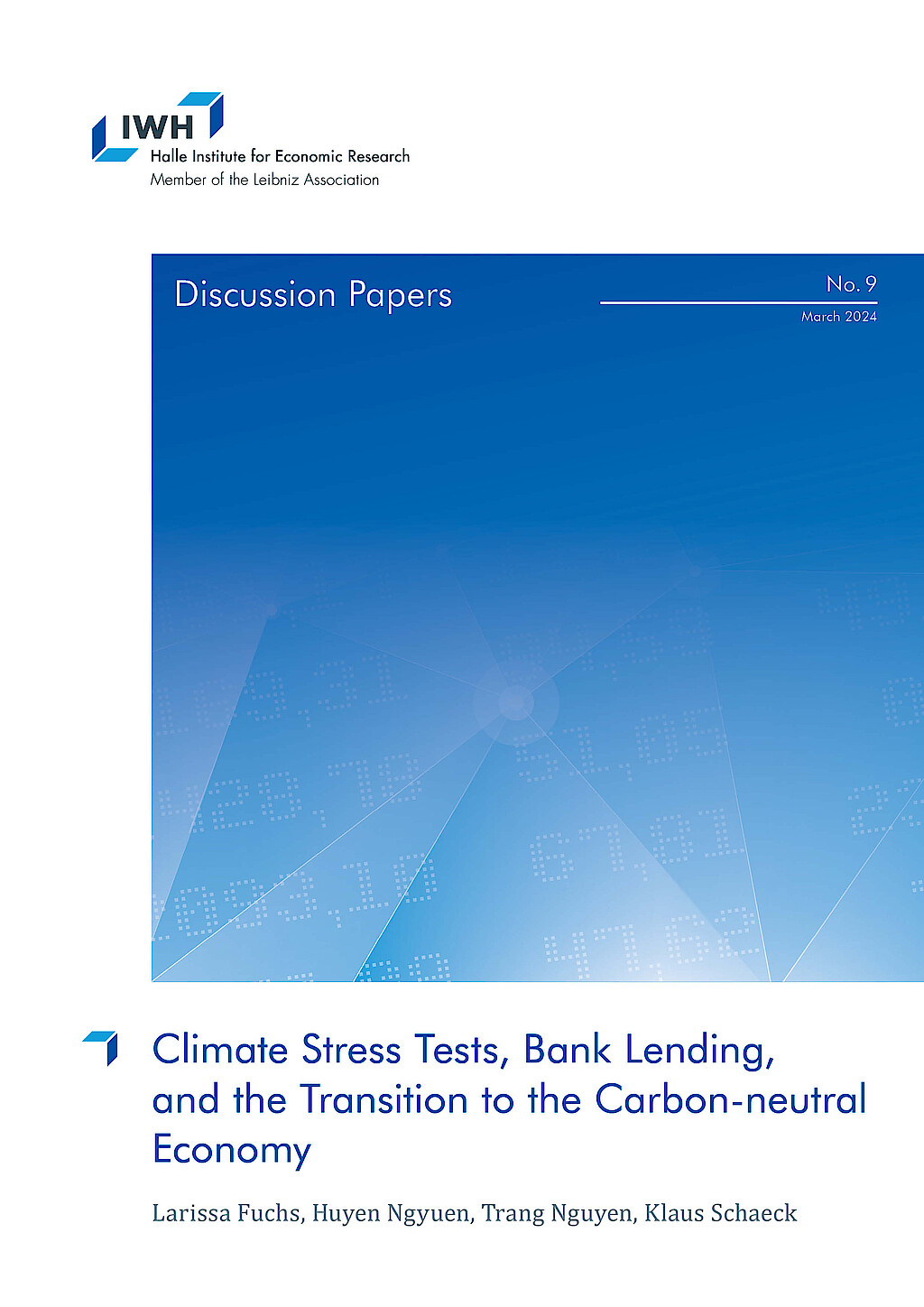
Climate Stress Tests, Bank Lending, and the Transition to the Carbon-neutral Economy
in: IWH Discussion Papers, Nr. 9, 2024
Abstract
We ask if bank supervisors’ efforts to combat climate change affect banks’ lending and their borrowers’ transition to the carbon-neutral economy. Combining information from the French supervisory agency’s climate pilot exercise with borrowers’ emission data, we first show that banks that participate in the exercise increase lending to high-carbon emitters but simultaneously charge higher interest rates. Second, participating banks collect new information about climate risks, and boost lending for green purposes. Third, receiving credit from a participating bank facilitates borrowers’ efforts to improve environmental performance. Our findings establish a hitherto undocumented link between banking supervision and the transition to net-zero.





